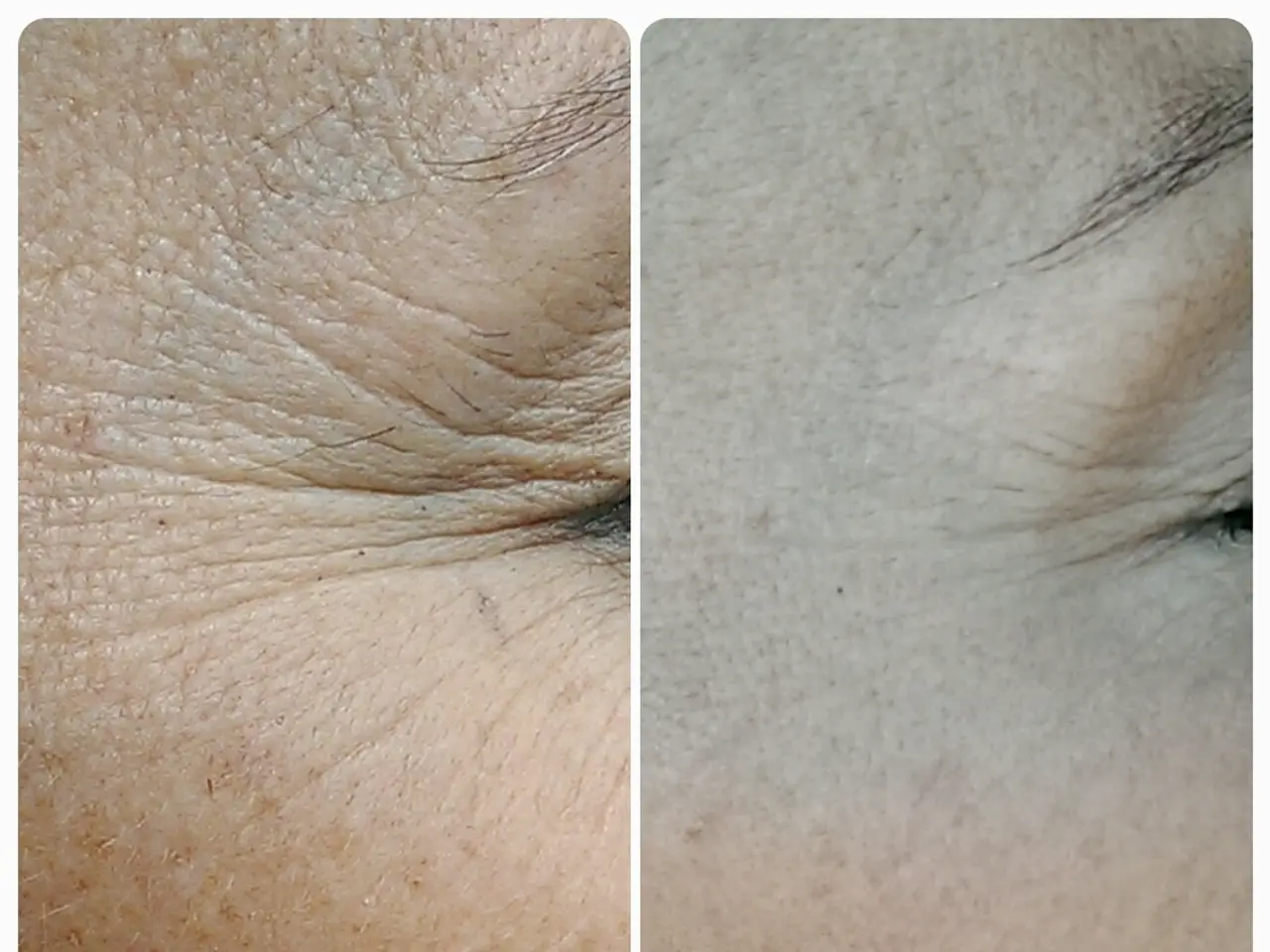Preventing Sun Damage and Wrinkles: Effectiveness of Sunscreens
In a world where sun exposure can lead to premature aging, a new study offers a promising solution - regular sunscreen application. Over a span of four years, individuals who were advised to use sunscreen daily were found to be 24 percent less likely to show increased signs of aging compared to those who didn't receive such instructions.
According to Dr. Jeannette Graf, a dermatologist, sunscreen is beneficial in combating various skin issues such as sagging, wrinkles, redness, textured skin, and skin damage. Chronic sun exposure significantly increases the rate of wrinkling, making sunscreen an essential part of skincare routine.
Sunscreen works by creating a layer on the skin that physically blocks or absorbs harmful UV rays. For optimal anti-aging benefits, it's recommended to opt for mineral sunscreens with zinc oxide. These sunscreens physically block UVA and UVB radiation, providing protection from UV-induced damage, photoaging, pigmentation, and cellular damage. They also have soothing and anti-inflammatory properties suitable for all skin types, including sensitive skin.
Effective anti-aging sunscreens should offer broad-spectrum UV protection, be water-resistant, non-comedogenic, and ideally include antioxidants and moisturizers to further protect, hydrate, and support skin regeneration.
The FDA is currently re-evaluating a number of chemical sunscreen ingredients due to blood absorption concerns, and it's worth noting that oxybenzone and octinoaxate are harmful to aquatic life.
Wearing hats, clothing, and sunglasses that protect the skin from the sun can also help prevent photo-aging. However, makeup containing SPF is not as protective as an actual sunblock, and it's advisable to double-up with a sunscreen.
Research has shown that sunscreen use not only prevents sunburn, skin cancer, and the breakdown of collagen, which leads to wrinkles, but also has anti-aging effects on the skin. A 2016 study, for instance, found that daily use of a broad-spectrum sunscreen with SPF 30 for a year showed improvements in skin clarity and texture.
Consistent sunscreen use can slow down the aging process of the skin. The American Academy of Dermatology (AAD) recommends using sunscreen daily, re-applying often, applying after skin care and before makeup, and applying all over. Dr. Graf recommends an SPF of at least 30 for adequate protection, while SPF 50 filters out about 98% of UVB rays.
However, it's important to note that not all sunscreens are created equal. About 75% of tested sunscreens in 2021 didn't provide adequate sun protection or had ingredients that could be linked to harmful effects. Therefore, it's crucial to choose a sunscreen that is both effective and suitable for your skin type.
In conclusion, regular sunscreen application is a simple yet effective step towards maintaining youthful, radiant skin. By shielding our skin from harmful UV rays, we can significantly reduce the signs of aging and protect our skin from damage.
Read also:
- Overweight women undergoing IVF have a 47% higher chance of conceiving naturally post-weight loss
- Bonsai Trees from Evergreen Species: Exploring Growth Characteristics & Distinct Qualities
- What temperatures may make walking your canine companion uncomfortable?
- Title: Information About Beovu: Potency, Form, Usage, and Additional Details





